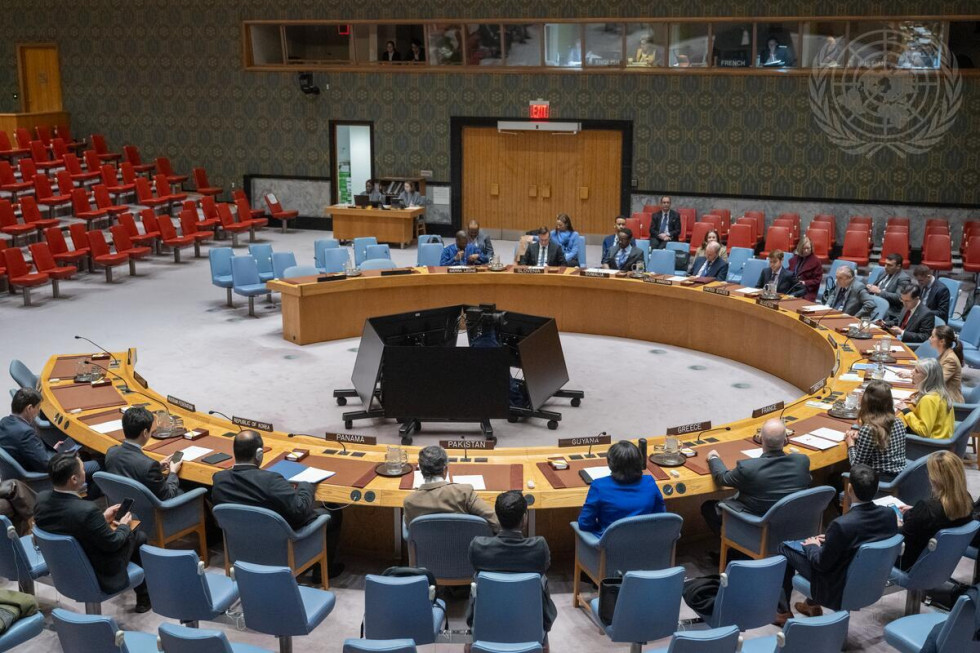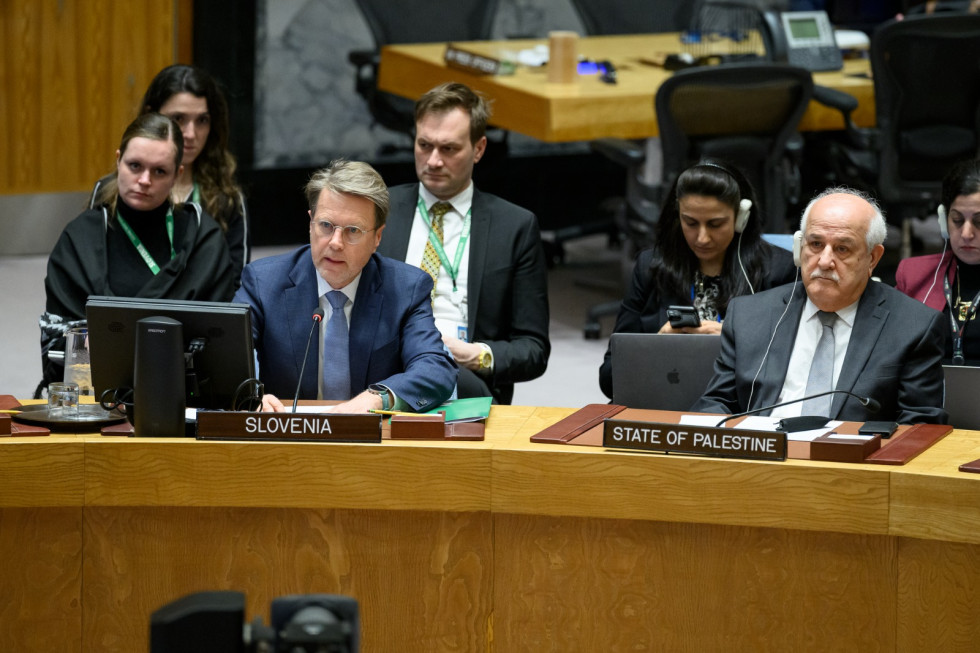Highlights of Slovenia's activities in the UN Security Council in March 2025
The signature event of the Danish presidency focused on adapting UN peacekeeping to new realities. In the future, peace operations will also have to address the root causes of conflicts in order to achieve long-term stability. It will be necessary to ensure greater synergies between prevention, peacekeeping and peacebuilding, and strengthen cooperation within the UN system and with global and regional partners.
In March, the Council adopted a presidential statement on Syria, reiterating its strong condemnation of the widespread violence earlier in the month that resulted in mass civilian casualties. At the regular monthly briefing on Syria, Slovenia stressed the need for a truly inclusive political transition in which women, young people and civil society play a meaningful role. Slovenia also underlined the obligation of the interim authorities to protect the population and to work towards reconciliation and recovery. The international community stands ready to assist.
The UN Security Council held a briefing on Gaza in response to the Israeli blockade of goods and humanitarian aid into Gaza. Slovenia supported the meeting, stressing that humanitarian aid should not be negotiable or politicised, and condemned the new Israeli attacks, which have reportedly killed more than 400 people. The resumption of hostilities puts all civilians at risk, including the hostages still held in Gaza.
At the request of Slovenia, closed consultations were held on the political crisis in Bosnia and Herzegovina, which resulted in the adoption of a press statement, coordinated by Slovenia. The Council expressed concern about recent developments in the entity of Republika Srpska that undermine the constitutional order, stability and territorial integrity of the country. It is important that the Council keeps a close watch on Bosnia and Herzegovina and takes note of the increasingly difficult situation there.
The Council discussed the continuing attacks and hostilities in Ukraine and the deteriorating situation for civilians. Slovenia called for an end to all attacks and supported the announced agreement to ensure safe navigation in the Black Sea as a first step towards a complete cessation of hostilities in the Russia-Ukraine war. At least 12,881 Ukrainian civilians have been killed and nearly 30,500 injured since 24 February 2022. Moreover, the number of civilian casualties in February alone increased by 35% compared to February last year. Even more worryingly, the vast majority of attacks are in clear violation of international humanitarian law.
At the beginning of March, the Council adopted a press statement expressing its concern about the signing of the charter establishing a parallel government in Sudan. The statement also reaffirmed Council members’ commitment to the sovereignty, unity and territorial integrity of Sudan and called on all parties to the conflict to end hostilities. Later in March, the Council met again to address the urgent civilian protection crisis in Sudan, amid shocking reports of sexual and gender-based violence, particularly against women, girls and even infants. Slovenia strongly condemned all forms of sexual and gender-based violence, including conflict-related sexual violence.
As the situation has also deteriorated in the east of the DRC, extraordinary closed consultations were held, in addition to regular briefings and consultations, to focus on the conditions in which MONUSCO is operating. Slovenia expressed concern about the continuing serious violations of international humanitarian law and human rights law.
The Council held a debate on Afghanistan, where the situation remains dire and humanitarian aid is a lifeline for more than half the population. Later in March, the Council unanimously adopted a resolution extending UNAMA's mandate for one year, including an environmental component proposed by Slovenia.
With regard to cooperation between the United Nations and regional organisations, the Council discussed cooperation with the European Union. EU High Representative for Foreign Affairs and Security Policy Kaja Kallas underscored the strong partnership between the EU and the UN and the EU’s commitment to international law, peace efforts, security, multilateralism, humanitarian efforts and UN funding. She condemned Russia's aggression against Ukraine and stressed the need for a just and lasting peace, and supported efforts to ensure peace in Gaza, Syria and the Democratic Republic of Congo.



